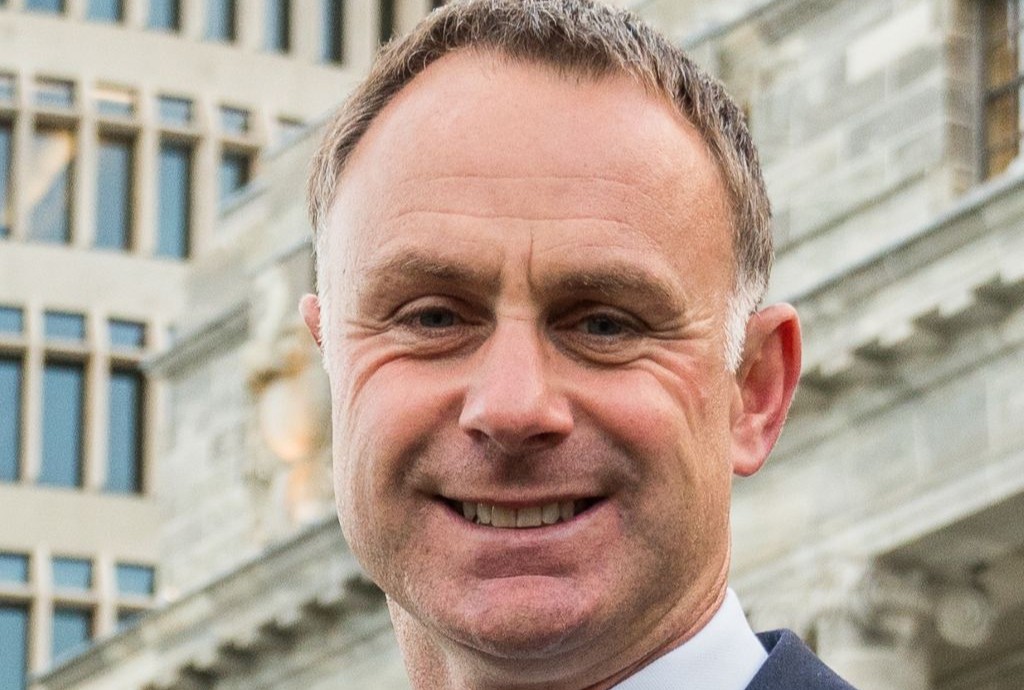Table of Contents
Chris Trotter
JACK TAME has tested another MP on his Sunday morning current affairs show, Q+A. Minister for Workplace Relations & Safety, Brooke van Velden, once boasted the only economics degree in New Zealand’s Parliament. Since the general election, however, this select fellowship of the dismal science has been augmented by fellow Act MP, Andrew Hoggard. What he would have made of his colleague’s response to Tame’s seemingly innocent question we can only guess.
The question Tame asked was disarmingly simple: “Are income tax cuts right now in the best interests of lowering inflation?”
If looks could kill, then Tame would have died then and there. Van Velden is a very intelligent woman, so, in the very few seconds she had to formulate a response to Tame’s question, she assessed the consequences of providing him with an honest answer, realised that, in this case, honesty would be absolutely the worst policy, and so, summoning her most earnest tone of voice, and with only the tiniest hint of embarrassment, she replied in the affirmative.
At this point there should have been a very loud klaxon-blast, and the word “WRONG!” should have flashed across the screen – in much the same way as incorrect answers are blasted on the British television show “QI”. Because, as Van Velden, herself, Hoggard, economics graduates everywhere, and even the reasonably well-educated person in the street, knows: cutting income taxes right now is most assuredly NOT in the best interests of lowering inflation.
I was still a teenager in the early 1970s, when inflation began to take off in New Zealand, and I remember asking my father what it was. His answer still stands as the best summation of the phenomenon I have heard. “Inflation”, he said, “is what you get when too much money is chasing too few goods.” Economists can encumber the simplicity of that definition with all kinds of impenetrable jargon; they can make it difficult and mysterious by rendering it algebraically; but, boiled right down, that is what inflation is.
If Tame had asked Van Velden another question related to inflation, her answer would likely have been entirely sensible. Zimbabwe, with a current inflation rate of 55 per cent, has just issued a new currency – the “Zimbabwe Gold” (ZiG) – backed, at least partially, by the nation’s gold reserves. For those who remember the hyperinflation of the Mugabe era (I still have a Zimbabwean banknote which promises to pay the bearer, on demand, $100,000 “on or before 31st July 2007”) this will be good news. Certainly, Van Velden, if asked, would applaud the Zimbabwean Government’s efforts. At the very least, Zimbabweans will no longer be forced to rely on American currency for their day-to-day transactions.
As an economist, Van Velden would not hesitate to condemn the idea of putting additional dollars in the hands of people already under severe cost-of-living pressures. She would know that the increased spending power being injected into the economy would inevitably lead to further price rises, as the extra money chased the same quantum of goods and services.
Van Velden would also know that the prospect of tax cuts fuelling inflation would place additional pressure on the Reserve Bank to keep the Official Cash Rate higher for longer – a strategy intended to ensure that the ordinary person’s pockets remain as empty as possible, for as long as it takes to reduce demand and lower inflationary expectations – even at the cost of inducing an economic recession.
Van Velden, wearing her economist’s hat, would also understand that Finance Minister Nicola Willis, in order to avoid the consequences of being seen to replenish the reduced state revenues occasioned by tax cuts by borrowing (the example of the British Prime Minister, Liz Truss, who attempted to do exactly that, is salutary) will have no other option but to slash state expenditure dramatically. The economic and social outcomes of such policies are readily predictable. The recession will deepen, public services will falter, and the population’s pain will intensify.
It is also possible, of course, that throwing the New Zealand economy into a deep recession, and increasing social misery, will bring the inflation rate down dramatically. It is even possible that such a strategy could produce deflation – too little money chasing too many goods – with a resulting fall in retail prices. Those tempted to welcome such a turn of events should ask themselves what falling retail prices are likely to do to business profitability and employment.
It should be clear by now why Van Velden the politician and Cabinet Minister chose to answer Jack Tame’s question as she did. Tax cuts in the midst of historically high inflation and a shrinking economy are not something any responsible government should be contemplating. Had she said as much, however, her comments would be leading every news bulletin and political journalists would be speculating avidly about her own, her party’s, and the Coalition Government’s future.









